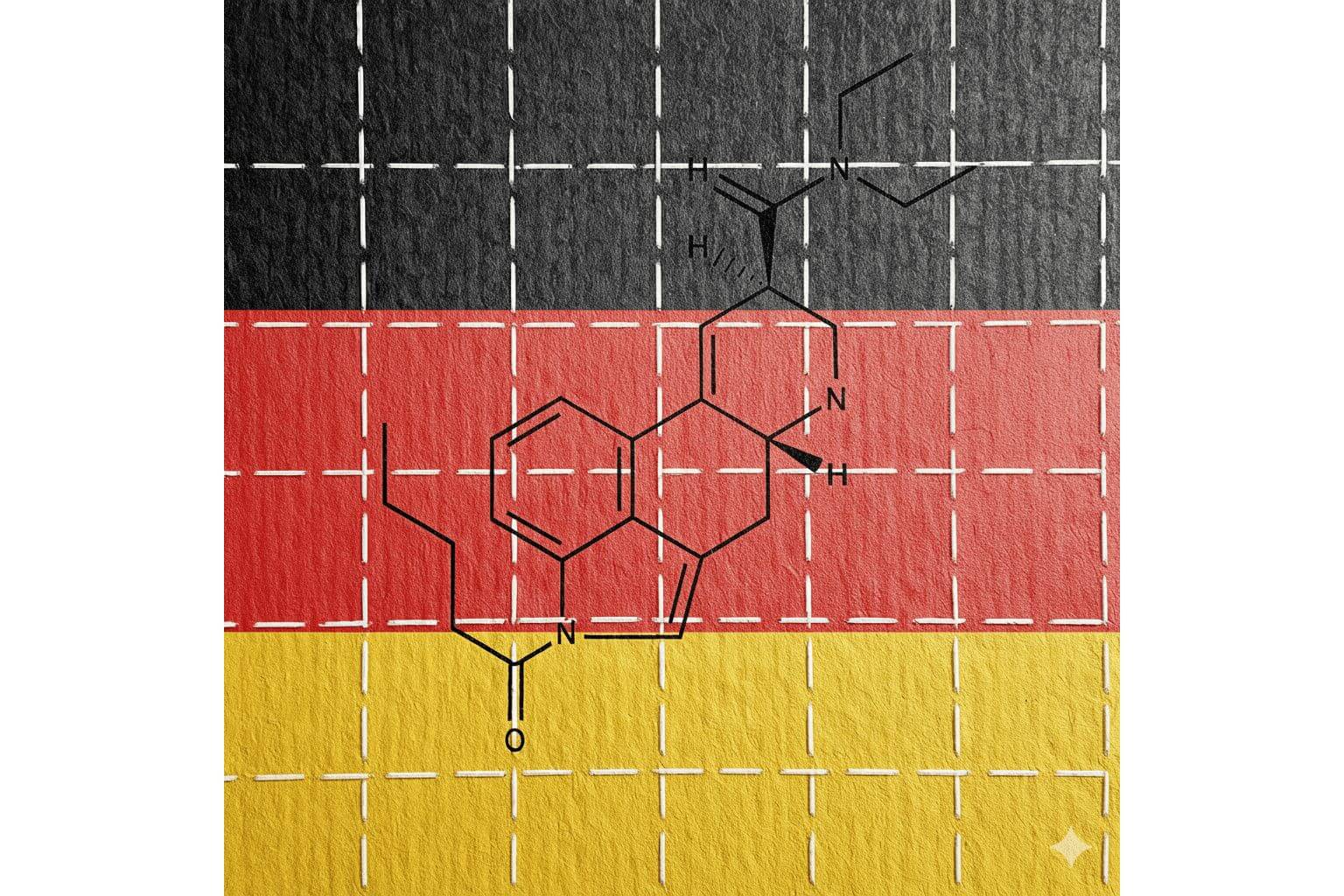As the landscape of psychedelic research continues to evolve, many researchers and curious minds are asking the same question: Is LSD legal in Germany? While LSD-25 (the classic psychedelic compound) remains a controlled substance under the German Narcotics Act (BtMG), legal analogs have emerged in recent years that provide new opportunities for scientific exploration. One of the most prominent among them is 1S-LSD.
What Is 1S-LSD?
1S-LSD (1-(3-(trimethylsilyl)propionyl)-lysergic acid diethylamide) is a novel research chemical belonging to the lysergamide class. It is chemically related to LSD-25 and analogs like 1P-LSD or 1D-LSD, but features a unique trimethylsilyl modification. This small structural change is enough to avoid classification under Germany’s New Psychoactive Substances Act (NpSG) – at least for now.
Unlike LSD-25, which is explicitly banned, 1S-LSD is currently unscheduled and can be legally sold and purchased for research purposes in Germany as of September 2024.
Why Is 1S-LSD Legal in Germany?
The legality of 1S-LSD stems from its distinct chemical structure, specifically the trimethylsilyl group added to the propionyl chain. This modification makes it legally distinct from other banned lysergamides like 1V-LSD and 1D-LSD, which were placed under the NpSG in June 2024.
Since the NpSG does not currently list silicon-containing lysergamides, 1S-LSD remains legal for scientific and analytical use. However, it’s important to note that legal status may change quickly, especially if lawmakers choose to amend the legislation to cover newly introduced analogs.
How Does 1S-LSD Compare to LSD?
Though research is still limited, 1S-LSD is thought to act as a prodrug of LSD—meaning it metabolizes into LSD-25 in the body, similar to how 1P-LSD or 1cP-LSD function. Like LSD, it likely works by binding to the 5-HT2A serotonin receptor, producing hallucinogenic and perceptual effects.
Its unique structure may slightly alter its onset time, duration, or binding affinity, but anecdotal reports suggest that 1S-LSD retains much of the psychoactive and research value of classic LSD.
Is It Safe to Buy 1S-LSD in Germany?
If you’re a researcher or laboratory professional, yes — 1S-LSD can currently be purchased legally in Germany, provided it’s used strictly for research or analytical purposes. We now offer lab-tested 1S-LSD blotters, in discreet packaging, with secure EU-wide shipping.
However, personal use and human consumption remain strictly prohibited. These substances are sold only for scientific purposes and must not be used recreationally.
Final Thoughts: Will 1S-LSD Stay Legal?
The legal status of 1S-LSD in Germany is likely temporary. As with previous compounds, legislators may eventually move to regulate or ban it under an updated version of the NpSG. Until then, 1S-LSD remains a legal, accessible option for scientific research in Germany and potentially other EU countries.
If you’re planning to buy 1S-LSD in Germany, make sure you’re working within the boundaries of the law and using the substance strictly for approved scientific applications.
